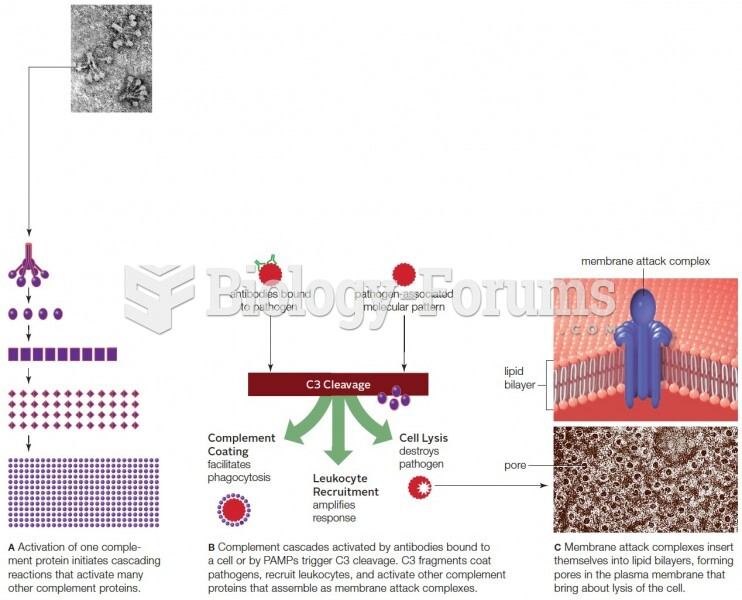|
|
|
Approximately 500,000 babies are born each year in the United States to teenage mothers.
The cure for trichomoniasis is easy as long as the patient does not drink alcoholic beverages for 24 hours. Just a single dose of medication is needed to rid the body of the disease. However, without proper precautions, an individual may contract the disease repeatedly. In fact, most people develop trichomoniasis again within three months of their last treatment.
Less than one of every three adults with high LDL cholesterol has the condition under control. Only 48.1% with the condition are being treated for it.
All adults should have their cholesterol levels checked once every 5 years. During 2009–2010, 69.4% of Americans age 20 and older reported having their cholesterol checked within the last five years.
Serum cholesterol testing in adults is recommended every 1 to 5 years. People with diabetes and a family history of high cholesterol should be tested even more frequently.
 The Dall sheep, Ovis dalli, a mountain sheep of far northern North America, was the subject of one o
The Dall sheep, Ovis dalli, a mountain sheep of far northern North America, was the subject of one o
 Visual tracking of a pendulum by a normal control subject (top) and three schizophrenics. (Adapted ...
Visual tracking of a pendulum by a normal control subject (top) and three schizophrenics. (Adapted ...
 Classical complement activations. IgM and IgG3, IgG1, and IgG2 activate the classical pathway of ...
Classical complement activations. IgM and IgG3, IgG1, and IgG2 activate the classical pathway of ...




